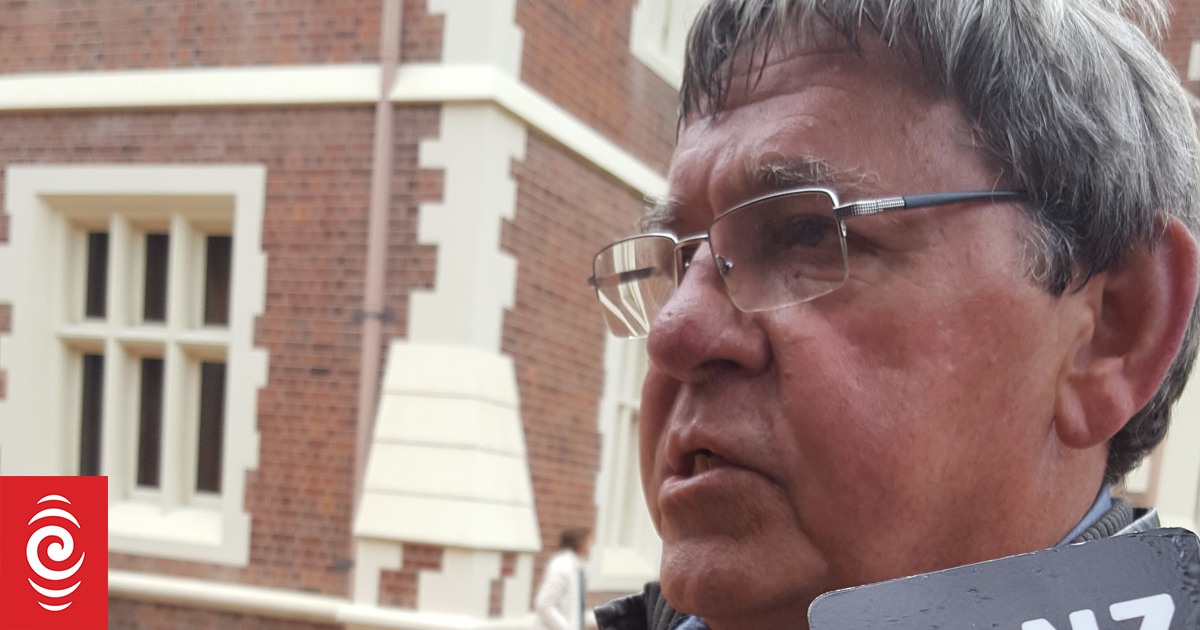David Tamihere.
Photo: RNZ
The lawyer for convicted double murderer David Tamihere has described his trial as fundamentally defective, as the Supreme Court hears his appeal at the High Court in Auckland on Monday.
Five Supreme Court judges are hearing arguments on whether the Court of Appeal in an earlier ruling was right to not quash his convictions.
Tamihere has always denied killing Swedish tourists Urban Höglin (23) and Heidi Paakkonen (21), and served 20 years of a life sentence.
His lawyers are appealing an earlier Court of Appeal ruling that found a miscarriage of justice, but upheld his convictions.
David Tamihere’s lawyer Murray Gibson.
Photo: POOL/Stuff
In court on Monday morning, Tamihere’s lawyer Murray Gibson outlined the three grounds of his submissions.
“Multiple breaches of fair trial rights relating to the evidence of principal Crown witnesses, fundamental error in that the Crown no longer subscribes to the case advanced at trial or evidence on which the jury were invited to find the defendant culpable of the homicide,” he said.
“Thirdly, relates to the constitutional role of the jury.”
Monday morning was spent with Tamihere’s lawyers giving a summary of their case, but deviated briefly to examine a map of the area Höglin and Paakkonen were said to have been exploring at the time of their disappearance in 1989, and where crews searched for them afterward.
Part of the Crown evidence in the original 1990 trial was false, coming from a prison informant later convicted of perjury.
Chief Justice Dame Helen Winkelman sits alongside other Chief Justices.
Photo: POOL/Stuff
Gibson referenced this when addressing the panel of judges.
“The Crown retreated from the theory put forward at trial, and advanced two subsequent explanations. It drew on evidence and propositions that have since been discredited.”
This meant when the jury came to consider Tamihere’s guilt, it did so within a discarded framework, Gibson said.
“This must be, in counsel’s submission, a sign of a fundamentally defective trial.”
Chief Justice Dame Helen Winkelmann said it was extremely tempting to try and work out what happened to the tourists.
“But that’s certainly not the task of this court.”
Swedish tourists Urban Höglin (23) and Heidi Paakkonen (21).
Photo: Supplied
Tamihere’s other lawyer, James Carruthers, said the trial had been tainted by a fundamental error.
He was asked to clarify if he meant it had been unfair, which he answered yes.
Winkelmann grilled Carruthers on whether he had it was an unfair trial during the Court of Appeal.
“Not in those explicit terms,” Carruthers said. “But it was certainly argued as the appeal developed that the case was not an appropriate case in which to apply the proviso, given the significant changes in the evidential landscape over the years, and the corresponding changes in the Crown’s theory of the case.”
Carruthers said there had been a fundamental defect.
“When you look at the trial that Mr Tamihere received, a trial that proceeded on a theory that has since been abandoned, propositions that have been abandoned with it, was tainted to a meaningful degree by perjurous evidence of a prison informant, was tainted arguably to a meaningful degree by other evidence that was proved false…
“When you combine all those facts, in my submission, they must amount to a trial that has gone fundamentally off the rails, or to a defect that goes to the root of the proceedings.”
More to come..
Sign up for Ngā Pitopito Kōrero, a daily newsletter curated by our editors and delivered straight to your inbox every weekday.

